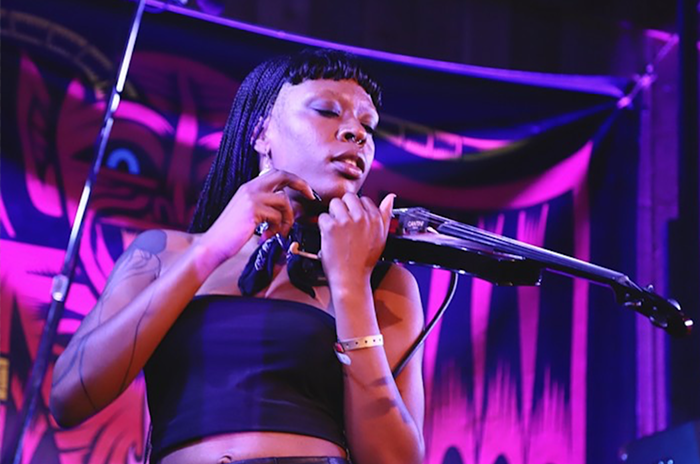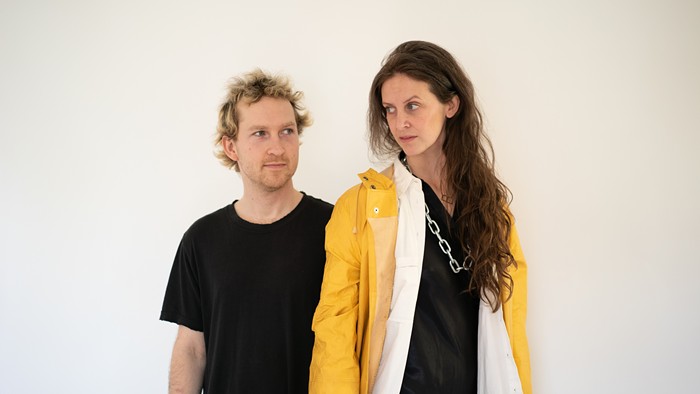MERCURY: One of the first things I took you're your new album, American Sunshine, was a song cycle with a nautical theme.
COLIN HAY: I think there's water in all my records. I can't get away from it. I think there's been water in all my records since ever since I left Scotland and went to Australia. Four weeks on the ocean and I think it's stayed with me ever since.
You did part of this album in Nashville, too. On the surface it seems like kind of a departure. What made you choose to record there?
The guy who owns the record company that I work for, Garry West, he owns Compass Records in Nashville. It was his idea to get me out of my own studio, because I think he thought that I was too comfortable.
You enjoyed doing that?
It was really good. I was a little bit unprepared when I got there. I thought maybe we'd get three songs done, but the musicians were so good that we recorded three songs in the first few hours or so. I had to come up with a lot of new songs to pretend that I had them all already prepared. I went back to the hotel that night and just finished off a bunch of songs. I ended up recording nine songs in two days, which was really quite exciting.
I've caught you a couple times on the Ringo Starr tour and the first few times was there anything surreal about it? The "Oh shit, I'm on stage with a Beatle" feeling?
Yeah, that happens every night, really. That kind of feeling never seemed to leave me. At some point during the night, I'd have a little moment of "Wow. This is... this is..." I can't even really think of the word. You know people use "surreal" a lot, but it wasn't really that either. It's just odd, being on stage with Ringo.
It seems like you go out there, play guitar with some good musicians, perform a couple of your old songs, and collect a paycheck. That seems like a pretty good tour, right?
Yeah. That's pretty much it in a nutshell. There are challenges involved because you're everyone else's sideman, so it takes you out of your element. You have to learn other people's songs, which is interesting, so you're kind of a sideman for them and for Ringo. It's very different from one of my tours. For one thing, you travel in an airplane. In a small plane—a very small and fast plane.
It's a nice tour to do for those very reasons. I think [Ringo's] been doing it for quite a long time, I think it might have been started in 1989. I can't quite remember, but it's a great idea.
I remember the last time I saw the tour, it was you, Gary Wright, Billy Squier, and of course Edgar Winter. I assume everyone checks his or her egos at the door, but with Ringo I guess that's not an issue.
Well that's the thing. Somebody told me when he first mentioned it to Joe Walsh, way back, saying [Beatles accent imitation] "I'm gonna put together a tour you know and go out with everyone, get 'em to come onstage...." He mentioned all these other players and Joe Walsh apparently said, "Oh, that'll never happen because of everyone's egos." And Ringo said, [Beatles accent] "Yeah. It'll happen." Joe Walsh replied, "What makes you so sure?" Which Ringo replied [Beatles accent], "Because I'm Ringo." There are very few people in the world that everyone knows by one name and there are very few people that every musician goes, "Yup. Sure. I'll do that."
Exactly. And on the flipside Joe Walsh had to deal with Glenn Frey and Don Henley all those years, they had some egos so maybe that's what he was used to.
Exactly.
You have a very unique voice. When did you first start singing? I mean, when did you go, "Hold on. I might have something here."
When I was 14 I sang at the church social and our main singer, he was a criminal. He wasn't actually a very good criminal, but he stole a PA system from the school, which was a senseless thing to do for two reasons—the PA was really bad, like all school PAs are, and the other reason was that there were only two bands in the suburb where we lived so the police went around to his house and of course they took him away to question him about it. So we had a gig to do and someone had to sing. So I sang and I discovered that not only could I sing, people responded. That was a great thing.
Now I'll tell you up front, I'm 40 years old so I was...
Youngster! You're a youngster!
I was 14 years old when MTV broke and I saw this crazy band called Men at Work. With the international success that you've achieved—there are not a lot of people who've achieved that—how do you prepare for that? Can you?
Well, not really, although I suppose I had 15 years of dreaming about it. I think Keith Richards said, "Your dreams don't come true. They just become real." It felt like that. It happened slower than people imagined but over the course of two years. But if you think about those two years, we would start playing in these bars and then the audience just got bigger and bigger. Before we even made records, we would have between 800 and 1,000 people coming to see us on a Thursday night. We knew we were doing something right. We were still very green, recording-wise, and it's a different setup down in Australia, but to cut a long story short there was an American producer down there at the time and he got introduced to us by the A&R guy who ended up signing us. It was very fortunate because he really knew what he was doing in the studio and could see the potential of the band and the potential of the songs. He took us into the studio and we recorded "Who Can it Be Now?" as a single. We just had a deal for a single and they said, "Well, go and make a single and see what happens."
So we did "Who Can it Be Now?" and that went to #2 in Australia. We made the album after that. It happened relatively gradually then it picked up steam and was an unstoppable train after that. But you can't prepare for it. I felt like we were ready for it when it happened, but we didn't really last. I think we didn't last very long because of the personalities in the band. It was never destined to last.
You were about 28 when "Who Can it Be Now?" broke, correct?
Yeah.
Would you have been able to handle that at 20 or 22? Or were you fortunate that maybe you were a little older than some of the pop stars that burned out?
It felt like there was a lot of time to figure out how to make records and go on tour. I'd been on my own for years because I never wanted to play other people's music, when I was young I played lots of covers—James Taylor, the Beatles, Cat Stevens—then I got sick of that and started writing my own songs. But people aren't really interested in that, unless they're good songs. It took a few years. I went to a university and it took a few years to feel like the songs were getting somewhere, then I met the other guitar player, Ron [Strykert] and he was very inspirational to work with.
You've won Grammys, had #1 albums worldwide, and achieved a level of celebrity that few do, but it was all fairly brief. How do you handle the comedown of that?
I never really thought about it, really. I never thought, "Well. Fuck. What am I gonna do now?"
I'll keep doing what I'm doing because I like to record songs and go out and play them. That's what I continued to do, as opposed to thinking "I'm not famous anymore." With anything in your life you have to roll with the punches and play with the cards that you're dealt.
And then if you get down you can always call up Ringo and get on his fast jet.
Yeah. Exactly. [Beatles accent imitation] "Come on, man. Get out on the road, man. I'm a little bored." I think that's what he does. I think he gets a bit bored and thinks, [Beatles accent imitation] "Oh, fuck it. I I'll go out on the road for a couple months," and at the end of a couple of months he's sick of it, you know.
Does Zach Braff have a huge man crush on you? Do you need to name a wing of your studio after him?
I've never gotten the impression that he has a crush on me. Probably a few people I know have a crush on me, but he's not one of them.
He had me on Scrubs and he liked my songs and took my CDs to Bill Lawrence—the guy who created Scrubs—and he really became a fan.
You know, he may have a man crush on me.



















